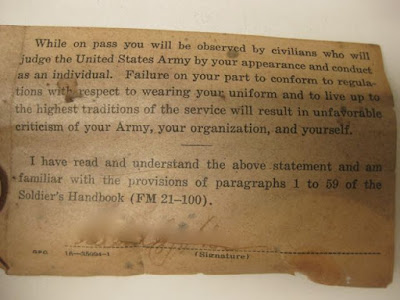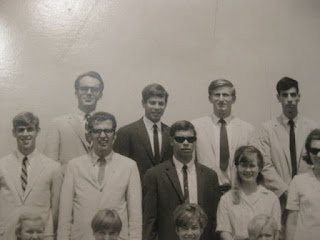My issue today is timing.
One conflict between the Republicans and the other two members of the Board* is whether the Board should respond to the remand 'expeditiously' as Borromeo, Bahnke, and the public testifying in support of what is now Plan Option 2 (that pairs the two Eagle River House districts) prefer, or to slow the process down, give more time for people to think and come up with options, and use up all the time the Judge gave the Redistricting Board - about two weeks. This second strategy has been supported by the Republicans and the members of the public opposed to pairing the Eagle River districts together.
Why does this matter? I had memories of what happened in the previous redistricting round. Because of court challenges, the Board's final redistricting plan was not complete in time to be used for the election of 2012. I recalled that what happened was that the original proclamation plan that had been ruled unconstitutional by the court was used.
So I was concerned that that would happen this time if the Board didn't act expeditiously. I asked the executive director of the Board and others involved with the process this year about the deadline for getting a completed map to the Division of Elections for the 2022 election. What I heard was: The filing date is June 1 so the map needs to be done by May 1.
If that were true, taking as much time as possible would give the Republicans the chance to delay long enough that the 2021 unconstitutional map would be used for the 2022 election.
My next question was: When does this new map they're working on become "the new map"? If they vote for a new map next Thursday, is that the date of the new Proclamation Plan? Or, since it was remanded to the Board by the Superior Court judge, does he have to approve it?
I emailed the director of the Division of Elections and when I didn't get a response after two days, I called. Someone named Donna said she didn't know the answer and would have Michaela get back to me. I called again the next day after not hearing from Michaela and Donna told me she didn't know. I asked, is there anyone who knows? And she said, I told you that's all I know. I asked her to transfer my question to the Director. That was Thursday and I'm still waiting.
When I first called Donna, I also emailed Merideth Montgomery who was listed as the media liaison at the appellate level of the State Court system. She was the one I'd talked to about getting media credentials for the Supreme Court hearing. She had approved that overnight and was very helpful when I arrived for the hearing back on March 18.
I did get an email back from her the next day. These were my questions:
"I'm trying to figure out
a) when the new 2022 plan needs to be officially adopted - I'm waiting for Div of Elections to get back to me on that - and
b) how this new plan becomes official. If the Board adopts a new Proclamation Plan next week, does that become the new plan? Or does Judge Thomas Matthews have to approve it before it becomes the official new plan? Or is there some other option I haven't thought of?"
I emailed my questions at 3pm on Wednesday April 6 and her response was dated 8:20am on April 7.
"I would say for question (a) that the plan needs to be "official" by the candidate filing deadline for the next general election (I think this might be June 1).
For question (b) my general response would be that a plan becomes "official" when litigation ends, which is technically the day after any appeal or petition could be filed. For example, if the Board puts out another plan, and no one comes to the superior court within the time allowed under Civil Rule 90.8, the plan is final. If a lawsuit is filed, then "officialness" occurs when all appeal avenues have been exhausted. As to the second part of your question this specific case and whether Judge Matthews still needs to do anything, I'm not sure, because I don't know what his instructions were after the supreme court sent the case back. I suspect, though, that he has maintained jurisdiction of the case, in which case, yes, he would need to approve before the new plan is final."
I was confused. If the candidates have to file by June 1, how can the deadline be June 1? People need to know what their district is more than a few hours to file. The Division of Elections surely has to have paperwork and maps ready for people coming in to file.
Part b was confirming my concerns. If the Board delays long enough - say til the 15th of April and the judge doesn't accept it (whatever that might entail - like remanding it again?) it could drag on into May. If the judge accepts it, someone could wait 25 days and then file a court challenge putting it beyond the June 1 deadline. And then would the unconstitutional plan adopted in November be the map for 2022? Like what I recalled happening in 2012?
Fortunately, I blogged the 2011 process -
as yesterday's post shows - so I could go to the index page (see the tabs up top, right below the orange banner). In fact, I wrote yesterday's post because I was going through what happened in 2011 looking for the posts that talked about adopting the unconstitutional plan.
What I found is a reminder that we shouldn't rely on our memories. The following comes from my May 22, 2012 post
What actually happened was this: The Board had been asked to redo the maps a couple of times and had now submitted several options to the Court.
"The Supreme Court issued an order today in response to the Redistricting Board
"It is ordered:
1. The Amended Proclamation Plan adopted by the Redistricting Board on April 5, 2012, including the Southeast Alaska districts as configured in the plan of that date, shall serve as the redistricting plan for the 2012 elections."
So, after ordering the Board to reconfigure Southeast Alaska to only consider the state constitution and not the Voting Rights Act at all, the Board met and worked hard to comply, though they all said they were not pleased with the result. Now the Supreme Court is telling them to just use the Amended Proclamation Plan with the Southeast districts as they were on April 5.
The reasoning? The court was concerned about the numerous objections they got over the Southeast Alaska districts and that the Department of Justice wouldn't find the plan in compliance with the Voting Rights Act.
"The court has accepted the Southeast districts as configured in the plan of April 5, 2012 rather than the reconfiguration submitted by the Redistricting Board to the court on May 14, 2012 because of the numerous objections to the reconfigured districts that this court has received. While the reconfigured districts may comply with the redistricting criteria of article VI. section 6 of the Alaska Constitution, there is a risk that the United States Department of Justice would decline to pre-clear them under the Voting Rights Act. Notice of the failure of the Department of Justice to pre-clear the new districts would come so late in the 2012 election cycle that a great disruption to the election process would result. In order to avoid this possibility, the court will not require the use of the May 15, 2012 reconfigured districts for the 2012 elections."
Two of the judges dissented - Winfree and Stowers - who thought the May 15 districts should have been adopted."
(Here's a link to the ADN article on this.)
So I was wrong. They did not adopt the original unconstitutional plan. The Court took part of the revised plan and for Southeast they used an earlier revised version. And the date of the post is May 22, 2012. So that's only a little more than a week before the June 1 deadline.
So what does that suggest for 2022?
1. The deadline for getting a plan to the Division of Elections can be well past May 1.
2. The Supreme Court can tinker with the maps and decide they which one should be used.
Can the Superior Court judge decide on a map to use? I don't know, but if he did, I'm sure the losing side would immediately appeal to the Supreme Court.
Other considerations:
Timing:
- All the House districts have been approved except for the ones affected by the Cantwell cutout, which the Board fixed and unanimously approved with no objections from the public. That doesn't seem like a problem.
- All the Senate districts except, maybe six in Anchorage are settled.
- So most of the map is essentially finished and the potential candidates for those districts know what their districts will be. That can be passed on to the Division of Elections by the time Judge Thomas Matthews gets the Board's decision.
What happens if the Judge doesn't like the changes to Senate Seat K?
1. He could send it back again with new directions
2. He could fix the map himself.
3. Either way there could be an appeal to the Supreme Court.
It seems there is enough time to send it back with instructions and a deadline. If the Court makes changes to the map for the 2022 election, I suspect it has to be backed by the Supreme Court.
From the Board's discussions this week, I think that at least member Simpson would comply with a Supreme Court instruction. But that's a just a guess. But he spoke about following the law on a couple of occasions - Binkley's decision to vote no on the Cantwell revision because he disagreed with the Court's ruling and when he voted no on accepting the Craig Campbell proposed Senate K fix that would have required changing a House seat.
These are the potential next steps. It appears that the courts can take their own action to determine what map the Division of Elections will use and that there is enough time to get a map for the regular primary in August and the November 2022 election.
I would just add that Andrew Gray testified today and made the point that there are no negative consequences for trying to politically gerrymander the map. It could go through without a lawsuit. But even if a lawsuit were filed, and successful, there are no negative consequences to any members of the Board for trying to abuse the process.
* The two other members are not identified with any particular party. Whether they have leanings - well they aren't leaning with the Republicans on the Board on the issue of political gerrymandering that the state Supreme Court found. For some of the people testifying, that seems to automatically make then lean Democratic. But there are other options. They don't have to lean toward a party. They could lean toward other issues and one that they appear to take seriously is the Alaska Constitution and the idea that the interests of ethnically diverse (I guess that's a euphemism mainly for non-White, but also includes non-Christian, and LGBTQ, and people with disabilities, etc.) should have their voices heard in the legislature.


































